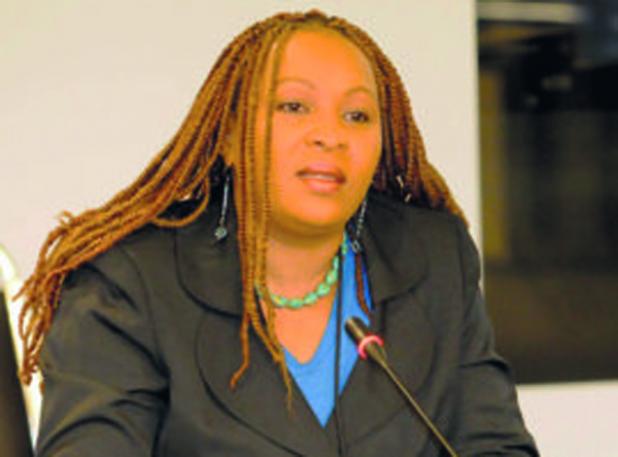
Senior Lecturer in Political Science at The University of the West Indies, Cave Hill Campus, Cynthia Barrow-Giles.
‘An absolute necessity’
AS the Government moves forward with plans for Barbados to become a republic by November 30, 2021, one political scientist says that based on the parliamentary republic model that has been proposed, there will not be substantial changes to the political system.
“There would be some changes in terms of the form, but there will not be changes in terms of the substance. Now I call that a minimalist republic, that is to say, that we are removing the British monarchy from the constitutional arrangement without necessarily changing any of the institutions of our political system, other than replacing the Governor General with a local president, and the president in that case would certainly be a ceremonial president,” Senior Lecturer in Political Science at The University of the West Indies, Cave Hill Campus, Cynthia Barrow-Giles, said in an interview with The Barbados Advocate.
The political scientist said that there has been a lot of discussion around whether or not becoming a republic is necessary, but she is of the belief that it is the next step for the country politically.
“For me it is an absolute necessity. I do not think that this is something that is debatable, but I understand there are people who are supportive of continuing the arrangement as it is currently. There are monarchists and they have their reasons and there are a lot of suspicions, and we can investigate where these suspicions are coming from, but there are suspicions about localising everything. It is the same kind of suspicion we have seen in relation to whether or not we should in fact reside our final court in a foreign space, or locate it in the Caribbean. So that kind of discomfort is there.”
She continued, “There are a lot of divided opinions, there are those who are definitely supportive of making that necessary move, and there are those who would like the status quo to remain.”
However, Barrow-Giles cautions that while republicanism is an important issue, it is not the most important in the country at this time, contending that there are a lot of other issues that should be dealt with before this.
Her comments came as she explained what a republic is and what it would mean for a country. In simple terms, she indicated that a republic is a political situation where the country is not being governed by a monarch. She said the goal of a republic is to have government actually vested in the hands of nationals and not in a foreign sovereign. As it stands, Barrow-Giles indicated that in terms of the Commonwealth, most of the 55 members have opted out of having Queen Elizabeth II as Head of State, and only 16 members, including the United Kingdom, are constitutional monarchies, of which the majority are in the Caribbean.
“…Technically, therefore, when we say we are moving towards republicanism, what we are doing is removing the Queen from the political order, from the constitutional order, and whatever role their representative plays in our political system.”
It has been announced that the president will have a non-executive role, and will be elected by an electoral college of both Houses of Parliament, but Barrow-Giles is of the belief that closer attention should be paid to what kind of president the country is going to have and what is the best way for the country to go about selecting that person.
“The selectorate is ushering in some disquiet, because there are people who believe that the Prime Minister already has too much power and we need to curb that power. So we have to look, therefore, at how will the president be selected, and beyond the minimalist republic that is envisaged, we have to look at how our political institutions will function better – what would be the behaviour of the President and the Prime Minister; what would be the nature of the relationship between them; what would be the nature of the relationship between the executive and the legislative branches of government,” she added.
She went on to say that there are some persons who argue that a president should be elected by the entire parliament and others argue that it should be done by a parliamentary committee or a national committee. She said while in both cases the selectorate is broader than what currently obtains, where the Governor General is appointed by the Queen on recommendation of the Prime Minister, there is also the strong argument that with a republic, the people should be responsible for the selection of the President. But, she explained that this has been rejected in other parts of the Caribbean.
“…That has been rejected for a number of reasons and one of them is the fact that people believe that such an individual would have an independent base, and that independent base would give them the political capital that would in a sense allow them to act as a check on the Prime Minister, even though the constitution may not necessarily give them that right. We understand what politics is all about and once a person understands that they are popularly elected, that gives them a legitimate right to pursue a particular agenda, which may sometimes be at odds with the agenda of the Prime Minister,” the political science lecturer stated. (JRT)
